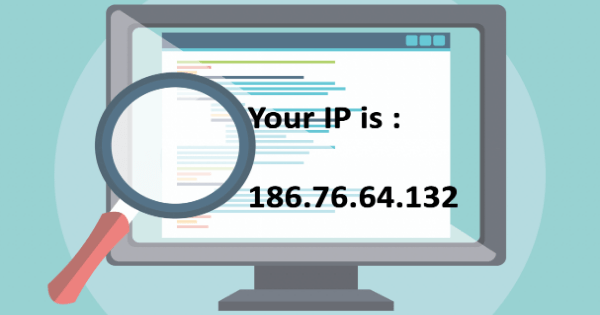
Internet security and IP addresses go hand in hand. If you want to know how online security tools such as VPNs work, it helps to learn the difference between private and public IP. Although both types of addresses help you connect to the World Wide Web (WWW), each plays a unique and different role. In this article, we will help you understand the meaning of private and public IPs and what role they play.
What Is a Public IP?
Before talking about the difference between a private and public IP, let’s first find out the meaning of each.
A public IP is a unique address assigned to any device connected to the internet. Look at your public IP as your portal to the World Wide Web (WWW). It is how your device communicates with other devices connected to the internet.
You can easily check your public IP by performing a Google search with the query ‘what is my IP address.’ Alternatively, you can use websites such as ipleak.net to find out.
Without this address, you would not be able to use your smartphone or laptop to Google and receive the respective search results or even visit your favorite social media sites. This address also points to your real geographical location.
Maybe, you have heard of a tool known as a VPN that hides a person’s IP and actual geographical location. You might want to hide your location online for several reasons. For one, you would be able to access geo-blocked websites such as Netflix and Hulu, especially if you are outside the USA.
Additionally, masking your real location keeps your online activities private from the prying eyes of hackers and your internet service provider (ISP).
Where do public IPs come from? Your ISP assigns you a unique address, which becomes your public IP. The ISP does not directly assign a public address to your phone, laptop, tablet, or other devices you use to connect to the internet.
Instead, it allocates the IP to your router. So, when you search ‘what is my IP?’, the number you see is your router’s public IP.

What Is a Private IP?
While your ISP assigns a public IP to your router, your router assigns a private IP to each device that is connected to it, in addition, of course, to the public IP.
Think about it this way: You have a wireless router at home that connects you to the internet via your phone, tablet, laptop, TV, and other devices. This setup is known as a local network.
Instead of each of your devices having its own public IP, the router gets a public IP and then assigns a private IP to each device on the network.
Each device then has a PUBLIC IP (common to all the devices connected to the network) + a unique PRIVATE IP address.
Your devices communicate to the router via a private IP and your router communicates to the internet via a public IP. This means that the actual private IP address of any of your devices is hidden behind the router.
This is why the address is known as private.
Because of its public nature, it is recommended that you mask your real IP whenever online privacy is a concern, for example, if you want to go on the darknet without being spied on by your ISP or anyone who might be looking.
Obviously, a VPN helps you to do so, and you don’t have to install it on your router.
You can simply use the app on your smartphone, tablet, or computer. This will hide your public IP and you’ll therefore be protected.
Difference Between Public and Private IP
The main difference between a private and public IP is this: A private IP is assigned to each of the devices in a local network such as what you would find in your home. It enables the communication between your devices and your router.
+On the other hand, a public IP is assigned to your router and is the portal through which you are able to connect to the internet.
While a public IP is visible to anyone who looks, a private one is only visible to you. A good VPN can make your real public IP invisible and will mask your geographical location too.
If online privacy and security is a concern and you would want to try a VPN service, ExpressVPN, NordVPN or Cyberghost are definitely worth looking at.

Flo is the founder of the-bestvpn.com. Really concerned about security on internet, he decided to create this website in order to help everyone find the best VPN. He’s got a Business School background and now is 100% dedicated to keeping his website alive.





